Internal actors
(A) The government: Bahrain has not experienced uniform governance during the reign of King Hamad Al Khalifa. The authoritarian prime minister, Sheikh Selman Al Khalifa, has always disagreed with the policies of the king and the crown prince, resulting in a confrontation with the people. The main demand of the protesters in the current uprising is the dismissal of the prime minister, who has been in office since 1971. He has opposed any compromise with the protesters and, backed by the Saudis, he has applied extreme force and escalated the violence directed at the opposition. Since the beginning of the protests, the Bahraini army has taken to the streets two times. There is some evidence that shows that both times, the protesters and the crown prince were actually on the verge of reaching a consensus on the level and nature of the reforms. But the arrival of Saudi forces turned the internal dispute into a regional crisis, creating more conflict between the regional powers.
(B) The opposition: There are seven opposition groups in Bahrain, both Shia and Sunni, which are trying to communicate the people’s demands to the government in a nonviolent manner. These seven groups -- Al Wefaq, the Islamic Action Party, the Haq Movement, the Al Wafa Islamic Party,
Al Akha, the Democratic Progressive Tribune, and the National Justice Movement -- were united during the recent demonstrations, leading protesters in order to be their representatives in negotiations with the government.
The February 14 Youth Movement, which organized the protests of 2011, is also active through online social networks. Al Wefaq is playing a leadership role among these opposition groups. In the 2006 and 2010 parliamentary elections, the party assumed the role of the leader of the other groups and factions. Moderate young cleric Sheikh Ali Salman is the secretary general of the party. He has been playing the role of coordinator between the people and the government in the recent protests. He and the spiritual leader of the party, Sheikh Issa Qassem, said that they do not want to overthrow the Al Khalifa regime but they do want to establish a constitutional monarchy. The leaders of the Islamic Action Party, the Haq Movement, Al Wafa, and two members of Al Wefaq were arrested by the government in the recent protests.
Foreign actors
(A) Iran: Nearly four decades ago, Iran accepted the independence of Bahrain based on the will of the people of Bahrain. The Iranian people have deep historical and cultural links with the Bahrainis, which go far beyond the current approach of Iran's foreign policy. Many Bahrainis have immigrated to Iran and many Iranians have immigrated to Bahrain over the past few decades. Immigration is an undeniable fact in Bahrain’s demography. The Al Khalifa themselves are migrants from another part of the Arabian Peninsula. Bahraini-Iranians constitute an important and undeniable part of the country's population, and in line with the doctrine of balance of power in the Persian Gulf, Saudi Arabia’s military presence in Bahrain is totally unacceptable to Iran.
(B) Saudi Arabia: The country is geographically the closest state to Bahrain. The tiny island is located close to the oil-rich Eastern Province of Saudi Arabia, which has a large Shia population, and there is a 24-kilometer bridge connecting the two countries. Through their donation of 150,000 barrels of oil per day to Bahrain, the Saudis have a share in the country’s national income. Bahrain is a member of the Persian Gulf Cooperation Council (PGCC) and has always supported the big brother in PGCC internal disputes. Thus, the influence of Iran in Bahrain has always been a source of anger and frustration for the Saudi government, and any popular uprising in the country resulting in an increase in the people’s role would be regarded as an increase of Iran’s regional influence.
(C) The United States: The U.S. celebrated the sixty-second year of its military presence on the island in 2010. Bahrain is a non-NATO ally of the U.S. in the region and relies on Washington to help it deal with any foreign threats. It is also a business partner with the U.S. with a free trade agreement. Along with Jordan and Morocco, Bahrain was one of three countries in the U.S. pilot plan for democracy in the Middle East. Therefore, the current situation in Bahrain has created many serious challenges for Washington.
The way forward
Bearing all this in mind, we can now take a closer look at the current situation in Bahrain. Clearly, the harsh crackdown on the people by the Saudi-backed security forces, which are committing blatant human rights violations, has not been able to end the crisis in the Persian Gulf island nation.
There is some evidence indicating that the majority of PGCC members disagree with the Saudis’ unilateral decision to occupy the country. The Iranian foreign minister was warmly welcomed during his recent trips to the United Arab Emirates, Qatar, and Oman, which proved that there is only a fragile consensus about the foreign military presence in Bahrain. The Saudi media described the trip as a real blow to the unilateral PGCC action. In addition, on the sidelines of the Persian Gulf Cooperation Council Summit in Riyadh, the king of Bahrain said that Bahrain is extending a hand of friendship to Iran. And the Iranian foreign minister responded positively.
So, what is the best solution to end the current crisis in Bahrain? Military occupation and repression of the people is definitely an abnormal policy, and history has proven that such measures are always a complete failure. By occupying the island, the Saudis have violated Bahrain’s territorial sovereignty and paid no heed to the demands of the people and the role of other regional actors. Therefore, lifting the emergency law is the first step that must be taken to solve the crisis. When the state of emergency expires on the first day of June, there will be no justification for a Saudi military presence.
While making every effort to avoid direct involvement in the unrest, foreign actors must use all their diplomatic capabilities to encourage the people and government to resume the reconciliation process.
If the current crisis in Bahrain is resolved, the country could become a model for resolving regional conflicts in the Middle East.
So it seems that collaboration between the people and the government is the only way to find a solution for the current crisis. External parties should encourage the two sides to engage in dialogue so the people can express their legitimate demands. In fact, there are still influential figures on both sides that are really capable of resolving this crisis.
Mohammad Farazmand is Iran's former ambassador to Bahrain.
MS/HG
END
MNA

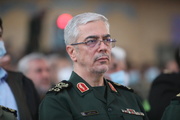


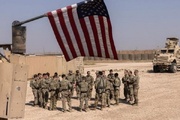
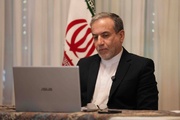
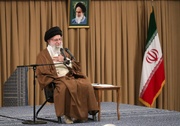
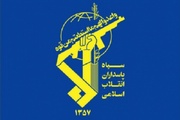
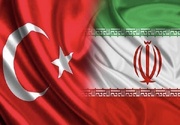
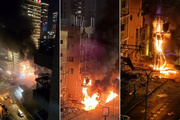
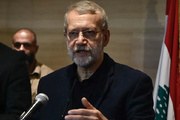


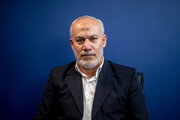
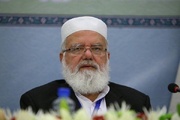
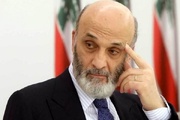
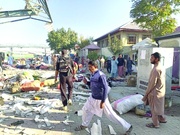
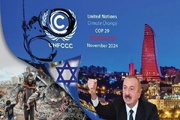

Your Comment